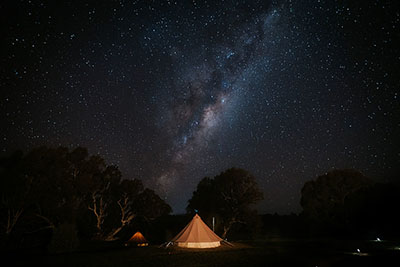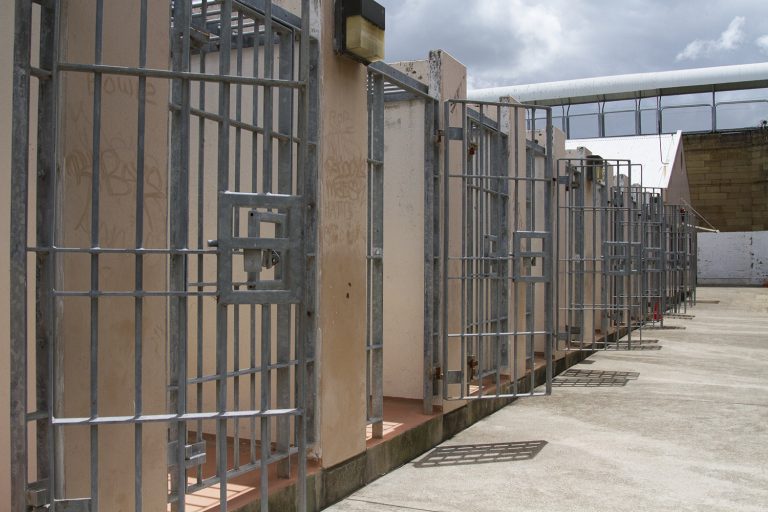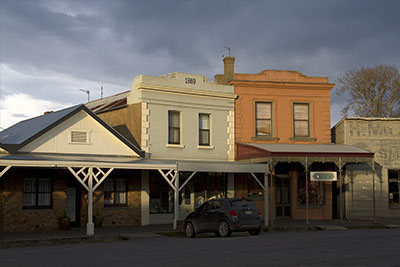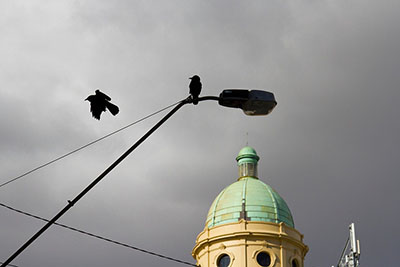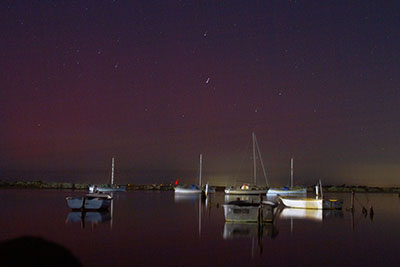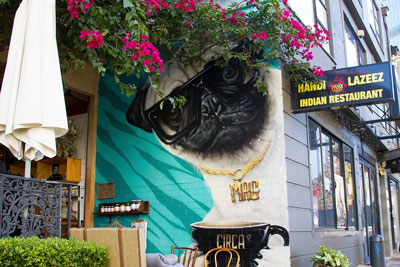23 fabulous things to do on the Great Ocean Road
The Great Ocean Road is a world-famous coastal road stretching from just outside of Torquay, around an hour from Melbourne, to the town of Allansford near Warrnambool. Discover the best things to do on the Great Ocean Road, towns and villages to visit, as well as nearby notable attractions.

The Great Ocean Road is without a doubt, one of Australia’s best road trips.
It hugs the southern coast of the mainland, winding along dramatic cliffs and passing some spectacular natural wonders.
Best known today as one of the country’s most scenic coastal drives, the road is actually a war memorial, built in honour of those who lost their lives in World War I.
Construction of the road began in 1919 and was finished in 1932. It’s the longest war memorial in the world.
And what else can you expect to find in this part of Victoria?
Fantastic fresh food, cosy coastal towns, amazing nature and native Australian animals in the wild, to name but a few draw cards.
Read on to discover top Great Ocean Road attractions and plan your own road trip itinerary.
Planning an epic drive along the Great Ocean Road? Check out this map:

How many days do you need to do the Great Ocean Road?
The Great Ocean Road is slightly over 200 kilometres long and takes around three hours to drive from start to finish. It’s just over an hour’s drive to the start of the road from Melbourne.
While you could drive most of the road as a day trip, it’s better to give yourself at least a couple of days to take in the sights.
Three days is ideal, as you could spend some time exploring Great Otway National Park and some of the attractions either end of the road.
I’ve done the drive out to the Twelve Apostles in a day, so it is possible to at least see these magnificent limestone stacks if you’re short on time.
It also depends on which direction you’re approaching the road from.
While most people start in Melbourne, it is possible to reach the road from Adelaide. You just have to go a bit further! And here are a few things you can get up to in Adelaide while you’re there.
When is the best time to visit the Great Ocean Road?
Most people flock to the Great Ocean Road in summer.
If you want to avoid the crowds, I highly recommend driving the Great Ocean Road in winter.
Winter in Australia is seriously underrated.
While it might not be a ‘beachy’ holiday, there will be less people on the road, making the experience much more pleasant.
The road is also lovely to explore during the shoulder seasons of spring and autumn. Really, it’s worth visiting anytime of the year.
Find out why summer is not the best time to visit Australia.

This guide to Great Ocean Road attractions will cover:
|
Things to do & see on the Great Ocean Road
Let’s explore some places to visit on the Great Ocean Road.
There’s quite a lot to see, as you may be able to tell from this guide. But many of the best Great Ocean Road attractions are lumped close together, so you can knock quite a few off in a couple of hours.

1. Snap a picture at the Great Ocean Road Memorial Arch
The Memorial Arch official commemorates the start of the Great Ocean Road.
It seems a time honoured tradition to take a photo under the arch, but side on is safer if you ask me – remember, it is after all, a pretty busy road!
Once you’ve got your photo in front of the arch – photo proof – you can hit the road.

2. Check out the Twelve Apostles
Of all the Great Ocean Road attractions, these limestone stacks are the best known.
The stacks are the result of 20-million(ish) years worth of erosion, thanks to the wild Southern Ocean and epic winds.
The limestone eroded into caves, which became arches, which collapsed into the ocean, leaving the tall rock stacks you can view today.
While they look lovely anytime of the day, the best time to visit is at sunrise or sunset. Try to time your Great Ocean Road trip, to see for yourself.

3. Walk the Gibson Steps (if conditions are right)
Get a glimpse of Gog and Magog, two giant limestone stacks rising out of the ocean, from a lookout.
Or descend an 86 step staircase, carved into a cliff, down to the beach (if the tide and swell make it safe to do so) for a different perspective of the rock formations.

4. Visit the Loch Ard Gorge
This is another one of the best things to do on the Great Ocean Road.
This popular stop-off is located down the road from the Twelve Apostles.
The gorge consists of a rock stack and sandy beach, enclosed by limestone cliffs.
The area is named after a boat that was famously shipwrecked onto Mutton Bird Island in 1878 (they don’t call this the Shipwreck Coast for naught).
If you visit at dusk, you’ll be treated to a show, as the short-tailed shearwaters (muttonbirds) fly on home.

5. Marvel at London Arch/London Bridge
This cliff structure was formerly known as London Bridge, named so because it connected to the mainland and erosion had carved out enough of the cliff to have it resemble its namesake.
In 1990, London Bridge fell down. Two tourists were sightseeing at the the time and were left stranded on the arch, waiting hours to be rescued by helicopter.
Now known as London Arch, it’s still a top Great Ocean Road attraction, even if you can no longer walk across the bridge.

6. Drop into the Grotto
This limestone cave is located right on the beach. Rock pools line its floors and the views are lovely.
You can find it just outside Port Campbell.

7. See The Arch
This rock formation doesn’t get as much of a mention as others along this coast, which is a shame as it’s one of the coolest (in my honest opinion).
It’s a good example of what the coastline may have looked like as it was being slowly eroded away.
It reminds me a lot of Dorset’s Durdle Door.

8. Say hi to the Bay of Islands
These towering limestone stacks can be seen from two different viewing areas.
They’re just beyond Port Campbell National Park, so don’t receive as much attention as other Great Ocean Road attractions.
This is because most tourists do the road on a day trip and at this point, tend to turn around exhausted and head back to Melbourne.
Kick on if you can, to check them out.
They look particularly dramatic on cloudy days.
9. & the Bay of Martyrs
You can use the Bay of Martyrs for views of the rock stacks of Bay of Islands.
As with any of these formations, they look loveliest at sunset.

10. Take in the view from Teddys Lookout
Head to the top of George Street behind Lorne for this popular lookout.
Teddys delivers sweeping coastal views of the Great Ocean Road, Southern Ocean and Saint George River.
The first lookout is usually quite congested with people. Head along the nearby path for better and probably emptier vantage points.
Keep your eyes peeled for sleepy koalas in the trees, as you walk along these paths.

11. Spend time in Forrest
Forrest is technically not on the Great Ocean Road – it’s around a 30 minute detour from Lorne and is one of the loveliest small towns in Victoria.
Yet, it’s well worth ducking into as a side trip, if you have the time.
If you’re driving along the back road to Melbourne, consider making a stop into this town on your journey.
There’s a ton of great walks to do in the area. Wander paths framed by ferns and dip between tall trees.
Then hop on into Forrest Brewing for a tasty cold bev.

12. Feast on seafood in Apollo Bay
You’re spitting distance from the ocean, so of course this part of Victoria is going to have next-level seafood.
In my opinion, this is one of the best things to do on the Great Ocean Road. Well. If you like seafood, that is.
Satisfy deep-fry cravings at Apollo Bay Fish and Chips, grab a scallop pie from Apollo Bay Bakery and order fruits de la mer (included Southern Rock Lobster) from Apollo Bay Fishermen’s Co-op.

13. Drop into Wildlife Wonders
Wildlife Wonders is one of the premier ecotourism activities in Victoria.
This wildlife sanctuary is protected by a fox and cat proof fence and home to a ton of native Australian wildlife, such as koalas, kangaroos, southern brown bandicoots, emus, potoroos and so much more.
Not to mention the beautiful flora that the Otways are renowned for.
Visitors can take a nature tour via a short walk with an expert guide.
It’s only five kilometres from Apollo Bay and well worth a visit.

14. Do go chasing waterfalls
This region of Victoria is full of beautiful, cascading waterfalls, surrounding by mountain ash trees and lush fern life.
If you love waterfalls, then put these on your list of must-see things on the Great Ocean Road.
Erskine Falls
This waterfall is easily accessible from Lorne.
It’s absolutely massive, plunging 30 metres into the Erskine River.
Get your first glimpse from the upper lookout, which is a five minute walk from the car park.
The lower lookout requires a bit more effort, as you walk 240 steps to the base of the falls. Totally worth it though (you may not agree with me when you’re walking back up them!).
Beauchamp Falls
It’s a somewhat more strenuous walk to the 20-metre high Beauchamp Falls, but worth the effort.
Take the walking path from the picnic area just off Aire Valley Road.
It’s a three kilometre trek – about an hour’s return journey.
Hopetoun Falls
Hopetoun Falls is located within the Great Otway National Park. There’s two viewing platforms – from the top, or 200 stairs down to the bottom.
You’ll need to follow the path from the car park to reach either platform, but stairs aside, it’s not a challenging journey.
Triplet Falls
Triplet Falls cascades into the water below, rather than just directly fall, its point of difference to other waterfalls in the area.
To reach it, jump on the scenic two-kilometre Triplet Falls Walk, from the Triplet Falls car park. It’s about an hour there and back.
Sheoak Falls
You’ll find this waterfall three kilometres south of Lorne.
They’re not the biggest falls in the area, but still worth a visit.
The water of Sheoak Creek cascades down a rock face, into a small pool surrounded by trees.
Here are some more locations of cool waterfalls in Victoria.

15. Take in the giant trees at the Californian Redwood Forest
While these tall trees are not native to the area, they’re certainly thriving in this literal neck of the woods.
These Sequoia Sempervirens Trees were planted in 1936 as part of an experiment.
So, they’re still quite young and will just keep growing and growing.
Wander through this section of the forest and take them in, in all their redwooded glory.
16. Scale new heights at Otway Fly Treetop Adventures
Check out the unique flora of the Otways from a fresh perspective.
Stroll along a 600 metre long and 25-30 metre high walkway, for an aerial view of the rainforest.
The walk takes around an hour to complete.
Ziplining adventures are also on offer after December 2022, when the course reopens.

17. Visit Cape Otway Light Station
This is the oldest surviving lighthouse on the Australian mainland, having been built in 1848.
Known as the Shipwreck Coast, lighthouses like this one were instrumental in preventing further wrecks and loss of life.
The light station is open Friday-Tuesday, from 10am-5pm.
If you’re after quirky accommodation along the Great Ocean Road, consider staying at the light station!
18. Make friends with ferns (& look for glowworms) at Maits Rest
Take a self-guided rainforest boardwalk within the Otways.
You’ll pass ancient fern life and giant Myrtle Beech trees.
It’s obviously gorgeous by day, but offers something really special at night.
Glowworms nest along the soil banks beside the track and let off a soft blue light at night.
As they like warm and wet environments, they’re best seen during the warmer months (December-March).
19. Do the Great Ocean Walk
And if you’re a keen hiker, why not tackle some (or all) of the Great Ocean Walk?
The walk starts at Apollo Bay and curls on through both Great Otway National Park and Port Campbell National Park. It ends at the Twelve Apostles.
The entire walk takes eight days to complete, at a distance of 110 kilometres.
If you’re not up to walking the whole route, you can choose between short or day walks, or multi-day hikes.
There’s dedicated campsites to stay in along the way (which must be pre-booked). Or, you can book off-walk accommodation, to enjoy hot showers and soft beds.
Check out this collection of books about walking, for more inspiration.

20. Go to the beach
Well, this is a coastal drive after all. There’s plenty of gorgeous beaches to stop at for a dip along the way.
Melbourne’s beaches can be rather, let’s say, lacking, so this is definitely one of the top things to do on the Great Ocean Road.
Pop on your bathers and frolic among the waves at:
- Jan Juc
- Bells Beach
- Lorne Beach
- Wye River
- Kennett River
- Apollo Bay
- Blanket Bay
- Johanna Beach
- Port Campbell.
Read my tips on beach safety in Australia, before entering the water.

21. See sleepy koalas on the Kennett River Koala Walk
Who doesn’t love koalas? No one, that’s who.
So, just on the chance to see these lazy marsupials in their natural habitat on this walk.
There’s a large population of wild koalas living in this area and they’re relatively easy to spot, chilling up high in eucalyptus trees.
Remember to look with your eyes only – don’t try to pat the koalas as they’re wild animals and please don’t feed them.

22. Visit a famous lighthouse in Aireys Inlet
Split Point Lighthouse is located at the start of the Great Ocean Road, near the famous Pole House, which has ocean views and as the name may suggest, is stuck way up high on a pole.
The lighthouse is known in Australia as being the setting for the 80s/90s children show ‘Round the Twist’. Mention this to any Aussie of this era and they’ll start singing the theme song. I guarantee it.
The lighthouse is open daily for tours, which cost $10 per person.
Aireys Inlet is also one of the best places to see the Aurora Australis in Victoria.

23. Take your tastebuds on tour along gourmet food trails
These taste trails are some of the more underrated things to do on the Great Ocean Road.
You’ll find many of Victoria’s top food and drink producers along this stretch of coast.
Make the most of it by planning a feast centred around the 12 Apostles Gourmet Taste Trail.
You can pick fresh berries, savour a whisky and grab a cone of fresh and tasty ice cream, along plenty of other experiences.
Or follow the Otways Harvest Trail for fresh produce, wine, beer, or a meal at one of Victoria’s top restaurants.

Towns along the Great Ocean Road
Seaside towns and villages along the Great Ocean Road include:
- Torquay
- Anglesea
- Airey’s Inlet
- Lorne
- Apollo Bay
- Port Campbell
- Allansford
While the road officially ends at Allansford, Warnambool and Port Fairy are not to further along the coast and well worth visiting in their own right.
Here’s are some things to do in the main towns along the Great Ocean Road.

Torquay
Torquay is close to the start of the Great Ocean Road.
It’s the beating heart of Australia’s surf culture. The town is the birthplaces of brands such as Rip Curl and Quiksilver and home to some of the best surfing beaches in Australia.
This includes the iconic Bells Beach, best known as the both the setting for the Rip Curl Pro and the end of the 1991 action movie Point Break. Jean Juc is also a great place to hang ten on wild waves.
As you can imagine, there’s plenty of places in town offering up surfing lessons.
Beyond the surf, relax with a brew at Bells Beach Brewing or grab brekky at The Salty Dog Cafe.

Lorne
Lorne is one of the top stops along the Great Ocean Road. Perched at the edge of the Otways, it has a relaxed, seaside atmosphere.
While you’re there, you can:
- take a dip at Lorne Beach
- eat at Ipsos Restaurant & Bar or Coda Lorne
- visit Erskine or Sheoak Falls.
- check out the view at Teddys Lookout.

Apollo Bay
Apollo Bay is one of the top places to stop in on the Great Ocean Road.
It’s close to many of the main attractions, making it an ideal place to stay for the night on your road trip.
I recommend making a stop at Apollo Bay Distillery, for a bite and flight.

Warrnambool
Technically not part of the Great Ocean Road, but a stone’s throw from its end lies this fantastic coastal town.
There are plenty of things to do in Warrnambool.
I thoroughly recommend heading to the Deep Blue Hotel to immerse yourself in its hot springs. It also makes an excellent base to stay at.
See fantastic local art at the Warrnambool Art Gallery and drop into Flagstaff Hill, an open-air museum and village, which is home to Victoria’s largest maritime and shipwreck collection.
Got a little extra time?
Stretch out your trip by driving further down the coast, to explore some of Victoria’s loveliest seaside towns.

Spend some time in Port Fairy
This is one of the prettiest towns in Victoria.
Wander the streets of the town centre to take in the maritime architecture. You can stay or eat at the historic Merrijig Inn.
Head over to Griffiths Island, home to a breeding colony of short tailed shearwaters or mutton-birds and snap a picture of its lighthouse.
Or you can time your visit with the Port Fairy Jazz Festival in February or the Folk Festival in March.

Get close to seals in Cape Bridgewater
If you’re driving further along the road, or are heading to or from Adelaide, I recommend stopping in Cape Bridgewater.
It’s one of Victoria’s most underrated destinations and is a must-visit for nature and wildlife lovers.
Here you can:
- wave hi to the local fur seals on a Seals by Sea tour
- explore a petrified forest, created by sand dunes covering moonah trees, thousands of years ago
- and checkout the nearby Blowhole, formed from the lava flow of an extinct volcano
- walk part or all of the Great South West Walk
- visit in the cooler months of the year for whale watching vantage points.

Where to stay on the Great Ocean Road
There’s plenty of accommodation options on the Great Ocean Road.
I recommend staying in Port Campbell if you want to visit the Twelve Apostles at either sunrise or sunset.
The Southern Ocean Villas are lovely, or try the Loch Ard Motor Inn if you’re on a bit more of a budget.
Apollo Bay is a convenient halfway point, if you’re taking a few days to travel along the road. Stay ocean front at Seafarers Getaway, or check into Apollo Bay Eco YHA.
Further out, the Oak & Anchor Hotel at Port Fairy is superb and has an excellent restaurant.
For something truly special, spend the night in one of the SkyPods on Cape Otway, to wake up to ocean views and wildlife. Check out other eco retreats in Victoria for more inspiration.
And for the ultimate indulgence, dine and sleep at celebrated restaurant Brae.
How to get to the Great Ocean Road
Most people approach the Great Ocean Road from Melbourne.
You’ll need to take the Princes Freeway (M1) on the way to Geelong. Then, take the Geelong bypass and head towards Torquay.
From there, hop on the B100, which will become the Great Ocean Road.

Is the Great Ocean Road worth it?
While it’s certainly one of the more touristy things to do in Victoria, the GOR is definitely worth it.
It’s one of the most stunning coastal drives in the world. And as you can see from this post on the best things to do on the Great Ocean Road, there’s plenty of other hidden attractions.
Short on time? This is what you should prioritise:
- the Twelve Apostles are the top spot on this road for a reason. Time your visit for sunrise or sunset
- check out Wildlife Wonders, an important conservation project just outside of Apollo Bay
- drop into the Grotto
- see the free flowing falls of Hopetoun Waterfall
- enjoy a seafood feast at Apollo Bay.
I hope this post on the best things to do on the Great Ocean Road has left you inspired. If road trips are your thing, consider checking out the original Silo Art Trail in the state’s northwest. And for more on Australia, see my Australia Travel Guide.


